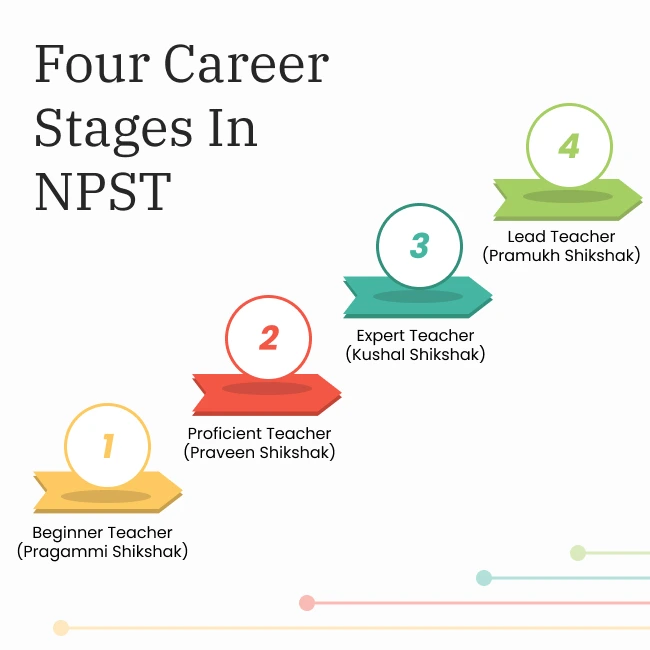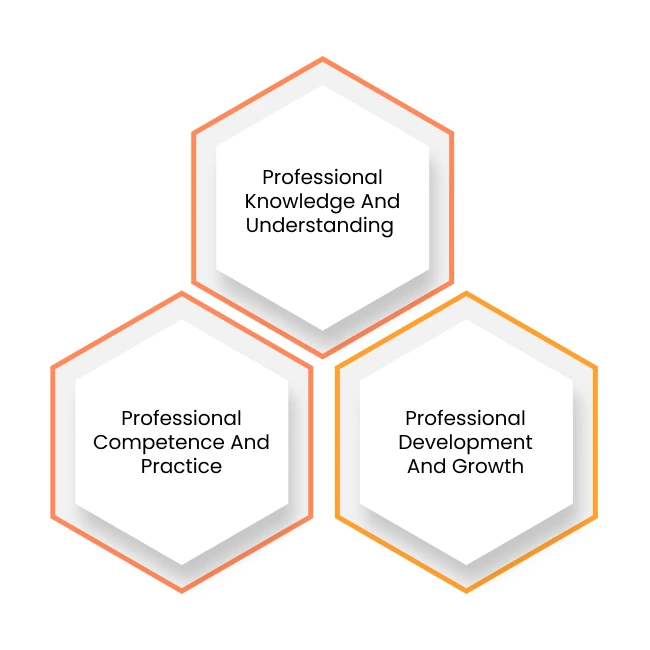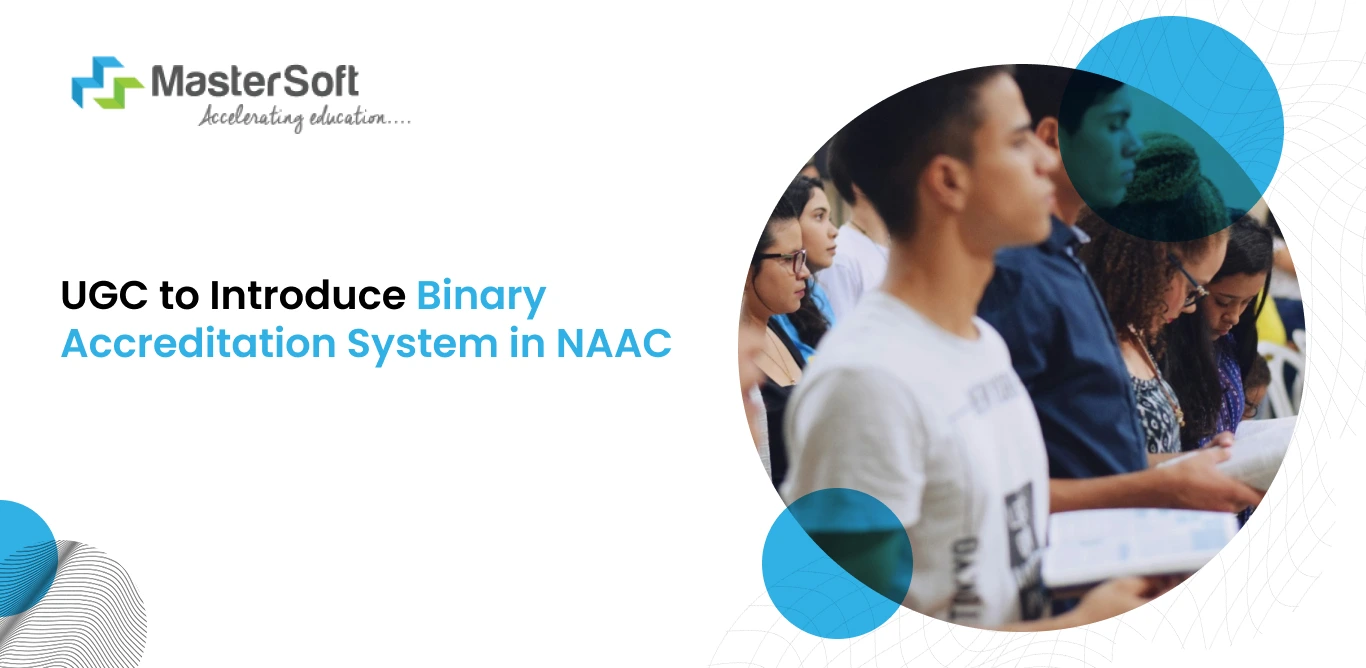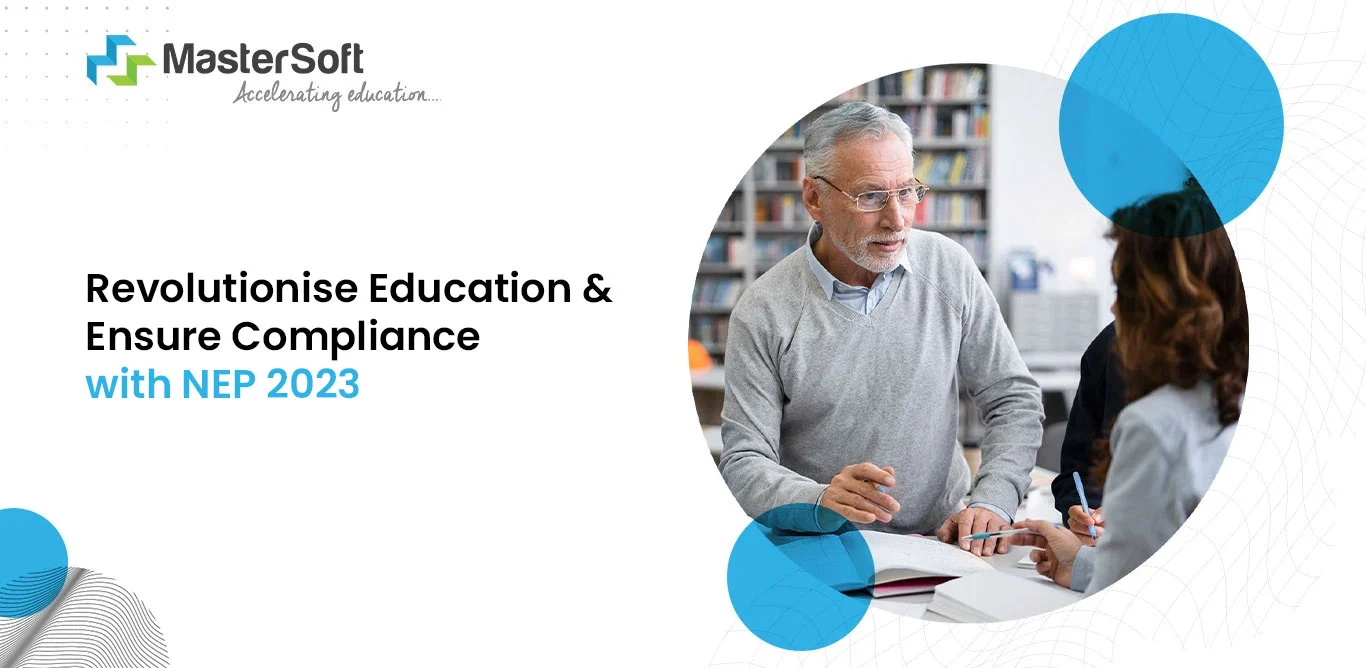26, Feb 2024
Academic growth and comprehensive development are two essential factors that contribute to a student’s success. But who is responsible for that? Teachers are integral to shaping the future of individuals; hence, their profession relates to nation-building.
Nonetheless, the evolution of the education system and the changing role of teachers have made it imperative to enhance the teacher’s quality. Therefore, NPST (National Professional Standards for Teachers) is instrumental in highlighting teachers' skills and objectives.
That is where institutes can use tools like the faculty management system to hire qualified and capable teachers.
Why Faculty Management Systems Are Increasingly Becoming A Necessity?
What is NPST?
The National Professional Standards for Teaching, or NPST, is a public statement that indicates a set of guidelines for high-quality teaching. It also relates to standards that define the teacher’s role as a professional at a career’s different levels and stages.
These standards refer to competencies that teachers must possess to function effectively in 21st-century schools. Therefore, teachers trained under NPST will be capable and highly skilled in imparting quality education to students.
As a result, students will receive proper care and attention, helping them develop skills and knowledge and solve challenges. Furthermore, the first draft of NPST has already been published and has been prepared through consultation with:
- NCERT (National Council of Educational Research and Training)
- SCERT (State Council of Educational Research and Training)
- Expert educational institutions
- The organization in Teacher Training and Development
- Experienced teachers from different parts of India
- Expert Institutions on Vocational Studies
- Higher education institutions
Four Career Stages in NPST

NPST is a guiding document that directs teacher training institutes and other stakeholders to prepare competent and quality teachers. It enables them to create qualitative teacher preparation programmes.
CPD, or Continuous Professional Development Programme, enables teachers to develop their personal qualities and professional capabilities. Besides, NPST suggests CPD throughout the following stages of a teacher’s career.
Pre-Service Preparation and Education
A teacher trainee must enrol in an NCTE-approved teacher training institution that will educate her or him based on a curriculum. The curriculum will include the competencies required for completing the teaching profession’s first stage.
The teacher trainee must go through pre-service preparation and education through sustained practice and mentor support. They will be eligible for ‘’Beginner Teacher status’’ after completing the initial teacher training programme and evaluation.
1. Beginner Teacher (Praggami Shikshak)
At this stage, teachers must be able to demonstrate appropriate competencies as per the level, concerning content knowledge and pedagogical practices. Schools and in-school mentors hiring new teachers must enable them to:
- Develop their own practice.
- Strengthen the knowledge acquired in pre-service education.
- The in-school mentors must evaluate the beginner teacher’s practice depending on specific standards to improve teaching delivery.
Besides, the new teacher must collect evidence of their practice and reflect on the learnings in terms of the competencies learned in pre-service education. Also, as the new teacher achieves the optimum level of performance, they can progress to the next stage.
Also, the schools must provide opportunities for continuous professional development for the next stage. They can use tools like the faculty management system to track their performance and acquisition of skills.
Revolutionize Faculty Management In Educational Institutions
2. Proficient Stage (Praveen Shikshak)
At this stage, teachers must be professionally independent in terms of applying the skills central to teaching and learning. School mentors must support the teachers in strengthening the knowledge that they acquired in Career Stage 1.
The school-based mentors must evaluate the teacher’s performance against the ‘’Proficient Teachers’’ standards. Also, he or she must be guided towards the next stage after they reach an optimum level of performance.
3. Expert Teacher (Kushal Shikshak)
This is the third stage in a teacher’s career that relates to them displaying a high level of performance in their practice. They must collaborate with their colleagues and provide them with support and mentoring to improve their learning and practice.
Furthermore, an expert teacher must strive to develop their knowledge and practice by reflecting on their own, colleagues', and students’ requirements. Additionally, an expert teacher participates in the following:
- They must participate in peer observations and be responsible for their and others’ learning.
- The lead teacher must evaluate expert teachers according to ‘’Expert Teacher’’ standards and mentor them for moving towards the next stage.
- Institutes looking to hire ‘’Expert Teachers’’ for specific subjects can use HRMS to streamline the recruitment process. Additionally, it will become easier for them to approve, verify, and schedule interviews and automate the selection process.
4. Lead Teacher (Pramukh Shikshak)
At this stage, the expectation of the role of a teacher relates to the highest standards of teaching according to the best practices. They will establish learning communities in schools, helping to improve instructional practices.
Moreover, lead teachers must play the role of peer leaders and mentors for teachers in the earlier stages of the teaching profession. Therefore, they must spearhead continuous professional development programmes in the schools.
On the other hand, education leaders trained by senior leaders must observe the lead teachers in terms of professional efficiency.
Areas and Standards of NPST
The National Professional Standard for Teachers (NPST) has highlighted a few key aspects of teachers’ career dimensions. In fact, there are four interrelated areas called standards that include multiple domains.
Core Values and Ethics
Core values and ethics relate to a set of beliefs, principles, and values that teachers must develop at each career stage. Moreover, some of the core values and ethics are as follows:
- Constitutional Values: NEP 2020 points out that teachers must develop constitutional values such as seva, ahimsa, swachchhata, satya, nishkam karma, shanti, sacrifice, tolerance, diversity, pluralism, righteous conduct, and gender sensitivity.
- Professional Ethics and Values: Teachers must establish a fruitful relationship with students and deal with them impartially. They must be just and regard each student irrespective of their caste, gender, social stature, religion, political affiliation, etc.
- Commitment to Students: Teachers must commit to providing high-quality and equitable educational opportunities for all children.
- Professional Relationships: Teachers must strive to maintain ethical and cooperative relationships with peers, students, parents, and educational leaders.
- Commitment to Profession: Teachers must commit to continuous professional development to grow and evolve. Also, they must strive to ensure productive and effective classroom transactions.
- Responsible and Ethical Use of Technology: Teachers must learn and optimise technological tools to enhance the teaching and learning process.

Professional knowledge and understanding
This standard includes the domain that relates to everything that teachers must know and understand about all students. Also, it includes the teaching and learning knowledge that they must acquire to function at each career stage.
In addition, the standard tracks how a teacher designs developmentally appropriate learning experiences for children.
- Knowledge and Understanding of Subject Area: Teachers must possess adequate knowledge and understanding of specific subject topics.
- Factors that Affect Student Learning: They must be aware of physical and mental wellness, learning styles, motivation, the home and school environment, etc.
- Pedagogical Knowledge: They must have knowledge and understanding of various pedagogies. Also, they must implement appropriate pedagogies according to the needs of the students.
- Curriculum Structures: They must be well aware of the new academic structure( 5+3+3+4 system) and the curriculum structure.
- Technology Use and Education: Strategic use of technology is a skill that they need to learn to improve time-consuming tasks. For instance, they can use HRMS to collect and store attendance records and question papers.
- Moreover, the software is an effective tool that accelerates many tedious and manual activities.
Professional Competence and Practice
This standard covers the domain related to a teacher’s ability to apply professional skills and knowledge effectively at each career stage. It also relates to carrying out teaching and learning assessment practices according to one’s specialisation.
- Learning Plans: They must implement story-telling-based and sports-integrated pedagogies. Also, they must create student-centric learning plans, helping to address individual students' strengths and weaknesses.
- Lesson Delivery: Lesson delivery should be fun and interactive, allowing students to ask questions. Also, it can involve a blend of delivery modes, such as
- Classroom Components and Dynamics: They should establish engaging classroom dynamics wherein students participate in the learning process.
- Assessment of, For, and As Learning: They must establish a comprehensive assessment system as a part of regular classes. The aim of the assessment should be to assess higher-order skills (analysis, conceptual clarity, analysis, etc.).
Professional Development and Growth
This standard covers the domain that deals with teachers’ ability to improve their professional knowledge and practice by participating in CPDs.
- Professional development: They must participate in all opportunities for continuous professional development. Additionally, they must seek external resources and training to stay up-to-date with the latest educational trends.
- Learning Needs: They must engage and collaborate with experts and educators to meet their learning requirements. Furthermore, they must assess students’ needs and identify the learning gaps.
- Reflection: Teachers must continuously reflect on their learning and knowledge acquisition throughout their careers.
- Engagement and Participation in the Learning Community: They must participate actively in programmes and initiatives, helping them learn and grow.
Final Thoughts,
The National Professional Standards for Teachers (NPST) are a set of directives designed to ensure quality and competence in teachers’ education. Furthermore, it has been drafted by experts to provide supremely talented educators in the teaching profession. It focuses on the teacher’s preparation, performance, practice, and improvement.
Simplify your faculty hiring process with MasterSoft’s faculty management system.
Mobile: 08448010216
Email:info@mastersofterp.com













